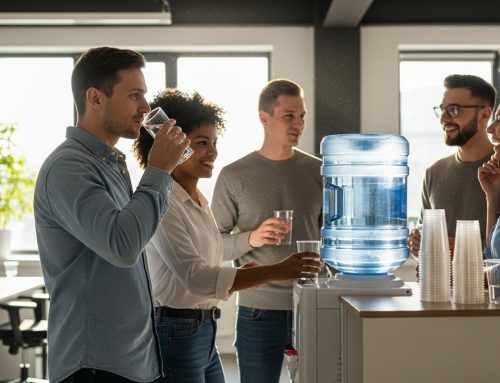 Drinking water is vital in order to keep the human body from dehydrating, because every cell in the body needs water to function at its best. The human brain consists of 85% water and is one of the organs dependent on you drinking water in order to function optimally.
Drinking water is vital in order to keep the human body from dehydrating, because every cell in the body needs water to function at its best. The human brain consists of 85% water and is one of the organs dependent on you drinking water in order to function optimally.
Why the Brain Needs Water
The brain needs water for the brain signals to work, and when there is not enough water or the water you drink is compromised, the signals short-circuit. Water supports human DNA and is the largest single source of energy for the human body. Drinking water regularly is important because the brain cannot store water, and when lost water is not replaced the brain becomes more deficient.
Water supplies energy to the brain cells, which require twice the amount of energy than any other cell in the body needs. Nerve transmission consumes half of the brain’s energy, which is almost 10% of the entire body’s energy requirements. Drinking water on a regular basis helps the brain to function at full capacity, which means that your creativity will be boosted and you will be able to think more clearly and better.
Inflammation Caused by Brain Injury
There are many reasons why brain inflammation can occur including accidents, head injuries, lack of oxygen, pesticides, premature birth, vaccinations, and a variety of infections. When the brain suffers inflammation it can result in the body’s ability to detoxify harmful substances becoming dysfunctional.
This can result in mitochondria that exhibit high free radical generation and low energy output. When individuals with impaired brain function do not drink water as often as they should, they become dehydrated which accentuates the problem.
Drinking Water and Autism
Individuals who are brain-challenged like those with ADD, Autism, Aspergers, depression, panic attacks, or other head injuries often do not drink water as much as they should. When an individual has autism or inflammation in the brain, toxins can more easily enter the brain, flooding it with free radicals.
Individuals with impaired brain function or challenged brain function caused by an accident, ADD, Aspergers, Autism, Dyslexia, Learning Disabilities, Traumatic Brain Injuries, or Post Traumatic Stress will often prefer to drink beverages that actually cause dehydration such as caffeinated beverages or those that contain sugar or alcohol.
According to the Mayo Clinic, the average adult loses in excess of ten cups of water daily through perspiration, breathing, urinating and waste elimination. If this lost fluid is not replaced, it will result in brain dehydration, which could present as:
- afternoon fatigue
- anger
- brain fog
- cravings
- depression
- emotional instability
- exhaustion
- focus problems
- grouchiness
- headaches
- inability to get along with other people
- lack of mental clarity and acuity
- lack of vision
- mental fatigue
- over sensitivity ; including auditory, tactile, taste, smell, and visual sensitivity
- pessimism
- picky eating
- sleep issues
- stress
- weakened immune system
When an individual is just 1% dehydrated, it will present as a 5% decrease in cognitive function. A mere 2% drop in body fluids can result in difficulty focusing, fuzzy, short-term memory problems, and trouble in performing the most basic math calculations. Studies have shown that prolonged dehydration can cause the brain cells to shrink.
Water delivers nutrients to and also eliminates toxins from the brain. Individuals with brain injuries or other brain challenges such as autism that result in brain inflammation have a dysfunction in their ability to detoxify harmful, toxic substances such as chemicals, infections, pesticides, pollution, radiation, toxic metals, and other free radicals.
It is therefore of vital importance that everyone, and most especially those with autism or any other brain challenge drink water often and regularly in order to ensure that their brain and the rest of the body is always fully hydrated.
Source:
Dr. Corinne Allen
Hire a water cooler in London from Living-Water. Buy water cooler or water cooler accessories for your home or office.





